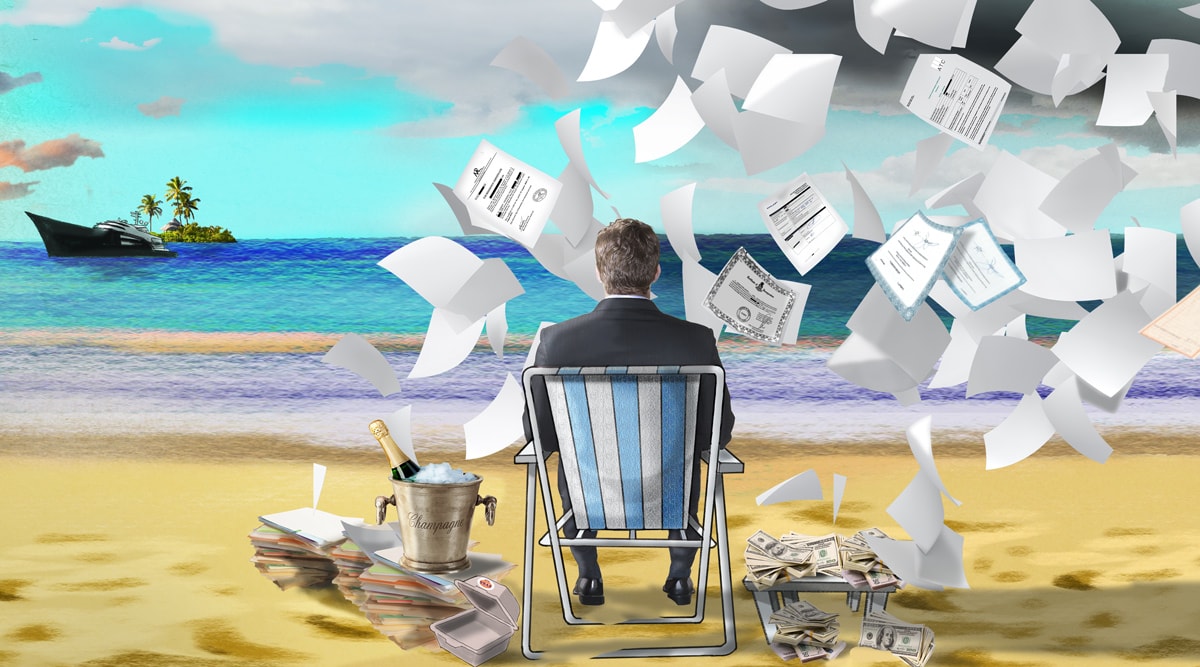The Paradise Papers are a huge leak of legal documents and emails stolen from international law firm Appleby, which provides offshore tax advice to multinational corporations and wealthy individuals.
The 13.4 million documents relate to advice the firm has given across more than 20 offshore centres regarded as tax havens between 1950 and 2016.
Around 120,000 people and companies are mentioned in the papers, but this does not mean they are involved in any wrongdoing.
Most of the firm’s customers – an estimated 30,000 – are from the USA. The three other big markets for the firm are Britain, China and Hong Kong.
Roughly 25,000 shell companies are listed.
Read more at the International Consortium of Investigative Journalists, Paradise Papers page.
Tax avoidance is not illegal, say lawyers
These companies can hold property, aircraft, yachts and investments for their wealthy owners.
The most popular offshore destinations for money are the Cayman Islands and Bermuda, followed by the Isle of Man and British Virgin Islands.
The Paradise Papers were leaked to German newspaper Suddeutsche Zeitung, which also had the first look at the infamous Panama Papers last year. The Paradise Papers are about half the size of the leak.
The papers reveal the artificial infrastructure the rich and famous use to avoid tax on their wealth. In many cases, the structures are legal, and no wrongdoing is involved, but in others, they may flout the law.
Appleby denies any unlawful acts by the company or any of the company’s clients.
One of the most notable names on the Appleby client list is the Duchy of Lancaster, which is Queen Elizabeth II’s private estate that runs into billions of pounds.
Queen had £10m invested offshore
The Paradise Papers reveal that the Duchy invested £10 million in funds based in offshore tax havens.
These investments include off-licence chain Threshers and controversial credit firm Brighthouse.
Regulators in the UK have just ordered Brighthouse to pay almost £15 million compensation to 250,000 customers for overcharging them for loans. The company is accused of trying to hard sell expensive credit to vulnerable customers suffering from mental disabilities or learning difficulties.
Due to the Queen’s exemption from paying UK tax, the question is what does the Duchy have to gain from investing in tax havens and has enough scrutiny been applied to how the royal cash was invested?
Another high profile offshore investor is US President Donald Trump’s commerce secretary Wilbur Ross, who is tied into to a multimillion pound shipping deal with Russian President Vladimir Putin’s son-in-law.
